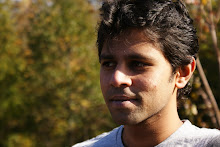Playing the devil’s advocate is risky business; yet, every great implementation has this ordeal to thank for, in its conceptualization.
Corruption is affecting our society. “Power corrupts” is a reality. The problem arises from the fact that power is viewed as political, monetary or one derived from affluence or related status. As citizens of the free world, each of us enjoy a degree of power- a power to educate oneself and others, a power to set a moral standard, a power to lead or to determine the leader. Corruption truly spurs from such power, when it is not exercised.
With lighted candles, a modest chunk of a billion awoke, to find their voice, to vet their power; to hazard a system that had rendered them mere puppets, comfortable ones at that. It is a shame that the populace of a democracy had to threaten its elected representatives with Satyagraha and hunger strikes to get their concerns through.
There is more than one way to approach any problem, or so I’ve been taught. You can go top-down, bottom-up, or haphazard. Although a majority believes that bottom-up yields the best results, it is also the toughest and one requiring a long term commitment. Hence many choose top-down; although it is easier to pinpoint the few issues at top, any solution will only be temporary and will not percolate to the bottom easily. This is true for engineering problems, and the current problem in society that we are fighting.
While the society pushes for legislative changes to address corruption, it is important that we give a thought to bringing in change at home. It makes more sense to say that making a better man makes a better society; not vice versa. History acknowledges it and logic supports it. A “better man” has innumerable definitions and traits. Let us start with two that can, hopefully, accommodate and nurture the rest.
- You know that you are living in a better society when there is an honor system in schools. When students don’t cheat, even without invigilation and threats of dire consequences, you are sure that these will grow up to be fine individuals. Point one: Instill the virtue of honesty amongst children.
- Individuals of all ages have the right of refusal. When students refuse preferential treatment based on anything other than merit, the legislative bias loses all meaning. Point two: Nourish a sense of pride in meritocracy and apathy towards all other social differentiators.
These two aim at developing a sense of universal integrity amongst a populace that sees gray. Yes, we live in gray times, in a world that cannot clearly distinguish between the wrongs and rights. Personal morals and beliefs are not the drivers for the right lifestyle or governance. Some may argue that utopia can be created by clearly distinguishing the right from the wrong. Others realize that utopia is fictional and unachievable; especially considering that we believe in convenient more than truth, integrity and honor. The only way to overcome such obstacles in our quest for utopia is by bringing in change at the grassroots. By hardwiring a universal moral stance at a tender age, we can hope that the next generation will do the right thing. Level the playing field, set the same rules.

